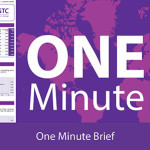Medical aid annual review: six questions to ask before accepting the default option
Annual medical aid premium increases for 2018 are measuring in excess of inflation once again, and this often comes with a decrease in benefit levels. This means consumers will have to make increasingly tough choices should they not wish to be caught on the wrong side of a medical bill. Regardless of the information available to consumers, it is astonishing how many people do not pay close enough attention to changes in their benefit levels versus premiums payable from year to year. This is due to the continued perception that medical aids are too complex, even though healthcare advisors are always available to explain changes and their impact. Reviewing your medical aid changes for the year ahead does not have to be an onerous task – it can be simplified into six questions which every consumer should ask themselves before... Read More
Investors who overreact to US vs North Korea ‘war talks’ could risk significant portfolio damage
Investors who get ‘spooked’ by the possibility of a looming war between North Korea and the United States of America should not be tempted to make rash portfolio changes due to this news. It is likely to do more harm to their long-term performance than if investors opt to ride out the pending storm. It is more important to spend time and attention on portfolio construction to ensure it can withstand known and unknown shocks. “It is understandable that investors become concerned when they see news suggesting the world may be facing another war, but a panic reaction can be extremely detrimental to long-term savings,” says Clive Eggers, Head of GTC’s Investment Analytics team. Market volatility increased sharply following a ‘war of words’ between the US and North Korea in recent weeks, raising fears of a nuclear war. This is... Read More
Trustees should embrace the importance of independent advice
Too many retirement fund boards of trustees still make poor investment manager choices based upon limited information, leading to unfavourable outcomes for the fund members which they represent. This is partially attributable to trustees’ reluctance to employ the expertise of investment consultants, due to the perceived high costs related to this advice. Historically, investment-related costs have been high, with the last few years revealing a global drive from regulators and industry commentators to lower these. We believe this has contributed to improved fee structures, however, this drive should not come at the cost of long-term returns for investors. Occasionally – even in the case of highly educated professionals – trustees believe they are able to choose an ideal combination of portfolio managers and/or asset allocations which will lead their fund to its desired investment goal. Regardless of a person’s understanding... Read More
The ONE Minute Brief – 20 October 2017
The GTC ONE Minute Brief covers the following topics: Economic and Political News Major South Africa Corporate News Major Global Economic News Technical Snapshot Download the full GTC ONE Minute Brief.






